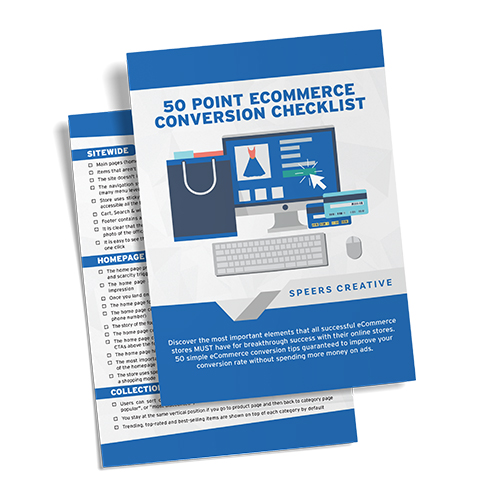The Best eCommerce Platform For 2023?
Created On: February 14, 2023
Created By: SC-Developer

In today’s digital age, having an ecommerce store is a must for any business that wants to stay competitive and reach a wider audience. But with so many ecommerce platforms available, it can be difficult to choose the right one for your business.
In this blog post, we’ll take a look at the top five ecommerce platforms and explore their key features and benefits, with an emphasis on Shopify.
- Shopify: Shopify is one of the most popular ecommerce platforms and for good reason. With its intuitive user interface, robust features, and strong support network, Shopify is an excellent choice for businesses of all sizes and industries.
One of the key benefits of Shopify is its ease of use. With its drag-and-drop interface and customizable templates, even non-technical users can easily create a professional-looking ecommerce store in just a few clicks. Shopify also offers a variety of features, including inventory management, order fulfillment, and marketing tools to help businesses grow and scale.
In addition to its core features, Shopify also has a large ecosystem of third-party apps and plugins that can be easily integrated into your store. Whether you’re looking to improve your store’s SEO, offer more payment options, or automate your marketing, there’s a Shopify app for that.
- WooCommerce: WooCommerce is a popular ecommerce platform built on top of the WordPress content management system. With its extensive customization options and flexibility, WooCommerce is a great choice for businesses that want more control over their store’s design and functionality.
One of the key benefits of WooCommerce is its open-source nature. This means that developers can easily create custom plugins and extensions to add new features and functionality to your store. WooCommerce also has a large community of developers and users who can offer support and guidance when needed.
However, one downside of WooCommerce is that it requires more technical expertise to set up and maintain compared to other ecommerce platforms. If you’re not familiar with WordPress or coding, it may be challenging to get your store up and running.
- BigCommerce: BigCommerce is another popular ecommerce platform that offers a range of features and integrations for businesses of all sizes. With its focus on scalability and high-performance, BigCommerce is a great choice for businesses that are looking to grow and expand their online presence.
One of the key benefits of BigCommerce is its multi-channel selling capabilities. With BigCommerce, you can easily sell your products on multiple channels, including Amazon, eBay, and Facebook, in addition to your own online store. This can help you reach a wider audience and increase your sales and revenue.
However, one potential downside of BigCommerce is its pricing. While it offers a range of plans to suit different business needs, BigCommerce can be more expensive compared to other ecommerce platforms, especially for larger businesses.
- Magento: Magento is a popular ecommerce platform that’s known for its flexibility and customization options. With its extensive range of features and support for multiple languages and currencies, Magento is an excellent choice for businesses that want to expand into international markets.
One of the key benefits of Magento is its extensive range of extensions and plugins. With over 5,000 extensions available, you can easily add new features and functionality to your store, such as social media integration, advanced analytics, and email marketing.
However, like WooCommerce, Magento can be more difficult to set up and maintain compared to other ecommerce platforms. It also requires more technical expertise and may not be the best choice for smaller businesses with limited resources.
- Squarespace: Squarespace is a popular website builder that also offers ecommerce functionality. With its sleek and modern templates, Squarespace is a great choice for businesses that prioritize design and aesthetics.
One of the key benefits of Squarespace is its all-in-one solution. With Squarespace, you can easily create a professional-looking website and add ecommerce functionality all in one place. This can save businesses time and resources since they don’t have to manage multiple platforms or tools.
In addition to its design-focused approach, Squarespace also offers a range of features to help businesses grow and scale. This includes built-in SEO tools, email marketing integrations, and a mobile app for managing your store on the go.
However, one potential downside of Squarespace is its limited customization options compared to other ecommerce platforms. While Squarespace’s templates are modern and easy to use, they may not offer the same level of flexibility as other platforms, which can be a drawback for businesses with more complex needs.
Who’s the winner? Our agency personally prefers Shopify. While each of these ecommerce platforms has its own unique strengths and benefits, Shopify stands out as an excellent choice for businesses of all sizes and industries.
One of the key advantages of Shopify is its ease of use. With its intuitive interface and drag-and-drop functionality, even non-technical users can easily create a professional-looking ecommerce store in just a few clicks.
Shopify also offers a range of features to help businesses grow and scale, including inventory management, order fulfillment, and marketing tools. Additionally, Shopify has a large ecosystem of third-party apps and plugins that can be easily integrated into your store, providing even more functionality and customization options.
Another key advantage of Shopify is its competitive pricing. While it may not be the cheapest ecommerce platform on the market, Shopify offers a range of plans to suit different business needs and budgets. This makes it an accessible and affordable option for businesses of all sizes.
In conclusion, choosing the right ecommerce platform is an important decision that can impact the success and growth of your business. While each platform has its own unique strengths and benefits, Shopify stands out as an excellent choice for its ease of use, scalability, and robust features. By choosing Shopify, businesses can create a professional-looking store that’s easy to manage and can help them reach a wider audience and increase their sales and revenue.
Thanks for reading this article! We hope you’ve found the information helpful and can use what you’ve learned to maximize your online sales potential. If you’re truly serious about drastically increasing the number new sales each month, then we have excellent news. For a limited time only, we’re offering complimentary, no-obligation strategy sessions with one of our in house eCommerce experts.
During your 30-minute session, we’ll discuss your current situation, what your goals are and how we can help you achieve them using our proven eCommerce system.
To claim your free consultation or find out more information about this limited- time offer, all you have to do is click here.
Sc Inside Tips
Subscribe to the SC Insider Newsletter and get real eComm marketing tips and optimization tactics that we use every day inside our agency, all yours completely FREE...


